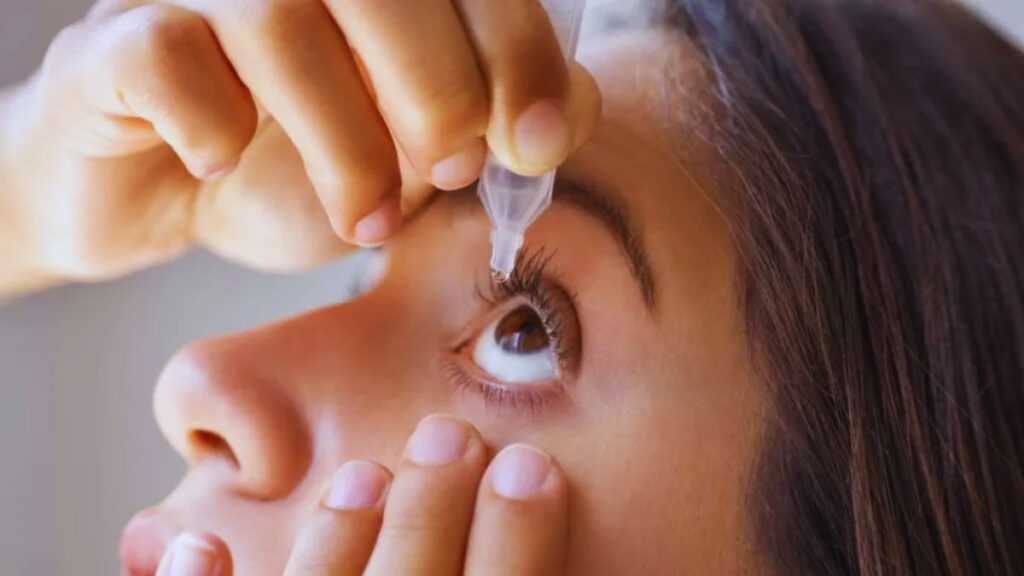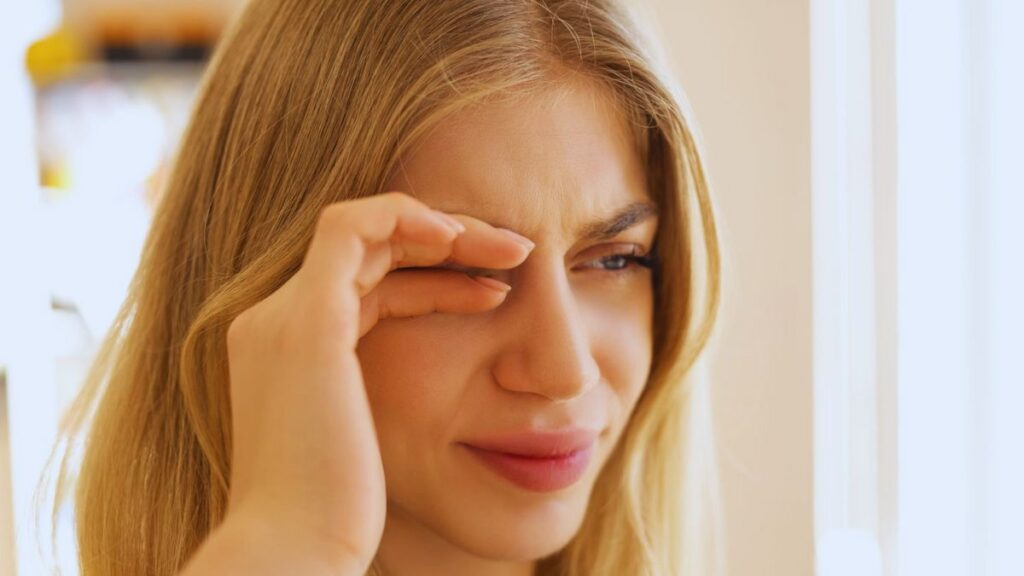Waking up with blurry vision in one or both eyes is more common than you may think. For most people, it’s a temporary condition that clears up after blinking a few times or rubbing the eyes. But if you regularly struggle with hazy or unclear vision after waking up, understanding the reasons behind it can help you find the right solution.
Here are the top 10 causes of blurry vision in the morning and what you can do to prevent it.
1. Dry Tears
Your eyes are constantly producing tears, even while you sleep, to keep the cornea nourished and lubricated. Sometimes, these tears dry out or form a thin film on the eye’s surface overnight, leading to hazy vision. A few blinks after waking usually remoisten the cornea and restore clear sight.
2. Eye Allergies
Morning eye allergies can cause itchy, watery, swollen, or dry eyes, often resulting in blurred vision. Common triggers include dust mites, pet dander, or even laundry detergents used for bedding. Keeping your bedroom allergen-free and using hypoallergenic pillow covers can help reduce symptoms.
3. Sleeping Face Down
Sleeping face down may lead to floppy eyelid syndrome (FES), a condition where the upper eyelid becomes lax and causes irritation, tearing, and morning blurriness. FES can affect anyone but is more commonly seen in obese men. Switching to a side or back sleeping position can reduce the risk.
4. Bedtime Medication
Certain medications, such as antihistamines, sleep aids, cold medicines, or high blood pressure drugs, can reduce tear production overnight. This leads to dry eyes and blurry vision after waking up. If you suspect your medication is the cause, consult your doctor about possible alternatives or adjustments.

5. Sleeping with Contact Lenses
Wearing contact lenses to bed is a common but risky habit. Contacts restrict oxygen supply to the cornea, resulting in dry, irritated eyes and blurred vision in the morning. Always remove your lenses before sleeping to maintain healthy eyes.
6. Alcohol Consumption Before Bed
Enjoying a late-night drink may result in more than just a hangover. Alcohol dehydrates the body and eyes, reducing tear production and causing temporary morning blurriness. Staying hydrated and limiting alcohol intake before bedtime can help.
7. Blood Sugar Problems
Fluctuating blood sugar levels—whether too high or too low—can cause morning vision issues. High blood sugar, in particular, can lead to swelling in the eye lens, creating blurred vision. If you also experience dizziness, fatigue, or increased thirst, it may be an early sign of diabetes, and you should seek medical advice.
8. Oil Gland Cause
The tiny oil glands around the eyes, called ‘meibomian glands’, sometimes produce excess oil overnight. This can cause irritation, sticky eyelids, and morning blurriness. Gentle eyelid cleaning and warm compresses can help regulate oil flow and prevent clogged glands.
9. Sleeping Under a Strong Fan
While fans can provide a cool sleeping environment, strong airflow may dry out the eyes, even when they are closed. This can lead to irritation and blurred vision upon waking. If you must sleep with a fan, consider using a humidifier to maintain moisture in the air.

10. Corneal Swelling
In rare cases, ‘corneal edema’ (swelling of the cornea) can cause cloudy morning vision that improves as the day progresses. This condition is often hereditary and tends to affect women around the age of 50. If you notice consistent morning haziness, it’s best to consult an eye specialist.
When to See a Doctor?
Occasional morning blurriness that clears after blinking or rubbing your eyes is usually harmless. However, you should consult a doctor if:
-
The blurriness is persistent over a time period.
-
Vision problems are accompanied by dizziness, headaches, or eye pain.
-
You notice sudden changes in your vision.
The ideal remedies are:
a) Do NOT rub your eyes excessively, which may further damage the cornea lining.
b) Splash cold water on your eyes after waking up – to soothe and calm the redness and irritation.
c) Use eye drops on regular basis to avoid dryness.
In rare but serious cases, persistent blurry vision can signal underlying conditions such as diabetes, hypertension, or even stroke, which require immediate medical attention. Blurry vision in the morning is often linked to dry eyes, allergies, poor sleep habits, or environmental factors like fans or air conditioning. In most cases, small lifestyle changes—such as removing contact lenses before bed, staying hydrated, and keeping allergens at bay—can significantly improve your eye health.
If symptoms persist, don’t ignore them. Your eyes are sensitive indicators of overall health, and consulting an eye doctor ensures early detection and treatment of any serious issues.



